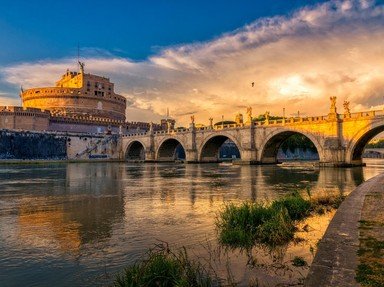Quiz Answer Key and Fun Facts
1. Who was the first Roman Emperor?
2. What was the function of the officer called the 'aquilifer' in the ranks of the Roman Army?
3. Found on many public buildings during the days of Empire was a plaque bearing the letters 'SPQR'. In Latin, this stood for 'Senatus Populusque Romanus'. What does this mean in English?
4. It is often said that in the reign of the Emperor Caligula, 37-41 A.D., a consul (chief magistrate) was elected to office whose name was Incitatus. What was unusual about Incitatus?
5. After the suicide of the Emperor Nero in 68A.D., a power struggle developed which saw four men proclaimed Emperor within one year. Who was the fourth, and longest reigning, of those men?
6. What famous Emperor is associated with the phrase 'In hoc signo vinces' ('In this sign, you will be victorious')?
7. A few years after the death of Constantine, and the conversion to Christianity of the Empire, this Emperor tried to reinstate the old pre-Christian Roman gods and banish Christianity. He is known to history, because of this, as 'the Apostate'. Who was he?
8. What important event occurred after the abdication of the Emperor Romulus Augustulus in 476 A.D?
9. Almost at the end, but returning to the beginning of the quiz: This officer in the Army had control over a total of about 5,200 men. What was his rank?
10. Finally, a literary Rome question. This author published two books which are considered classic works of history, dealing with the life and times of the Emperor Claudius (ruled 41 - 54A.D.) The books were 'I, Claudius' and 'Claudius the God'. Who was the author?
Source: Author
--xKIWIx--
This quiz was reviewed by FunTrivia editor
bloomsby before going online.
Any errors found in FunTrivia content are routinely corrected through our feedback system.
